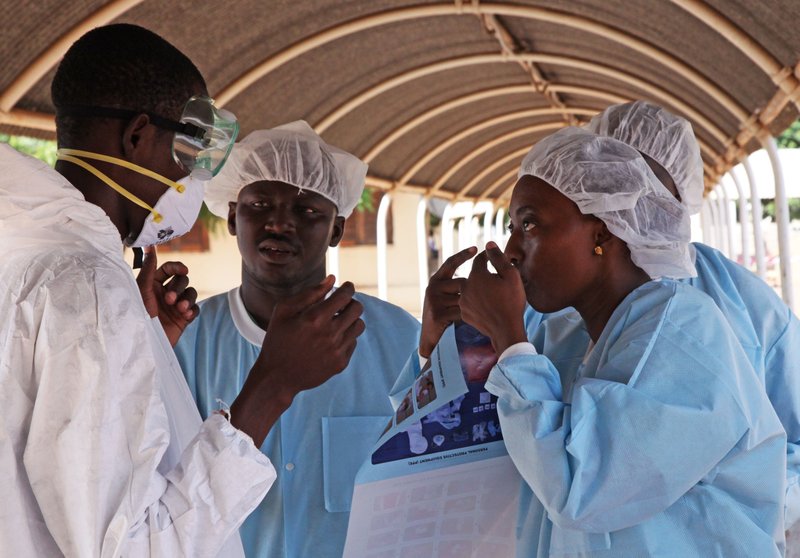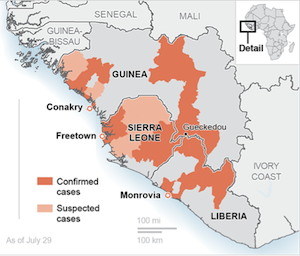DAKAR, Senegal -- The last Ebola patient being treated in Mali has survived the disease and has been released, the Health Ministry said Friday, leaving no known cases in the West African country.
Mali has recorded eight cases of Ebola, all of them linked to people who crossed from neighboring Guinea. The country now has no confirmed or suspected cases, according to the ministry, but authorities are still monitoring 26 people who had contact with the sick. A person infected with Ebola can take up to 21 days to show symptoms.
The last patient was discharged Thursday after several Ebola tests came back negative, the ministry said in a statement posted on its website.
Because people are still being monitored and a sick person could cross the border again, the government warned Malians to remain vigilant.
Countries are only declared free of Ebola when 42 days -- twice the maximum incubation period -- have passed since anyone has had contact with a confirmed or probable case.
In the current outbreak, Ebola has sickened more than 18,200 people, the vast majority in Guinea, Liberia and Sierra Leone, according to the World Health Organization. Of those, nearly 6,600 have died.
A photographer for the Washington Post sent to cover the outbreak in Liberia died Thursday after collapsing while returning on foot from a village where he'd been working, the newspaper reported.
Michel du Cille, 58, a three-time Pulitzer Prize winner, died before he reached Phebe Hospital in Bong County, Information Minister Lewis Brown said Friday. It took two hours, traveling on dirt roads, to get Du Cille to the hospital after he collapsed, according to the paper.
Health officials in Bong have been instructed to send the body to Monrovia, Liberia's capital, Brown said.
Meanwhile, President Barack Obama said Friday that the U.S. must remain vigilant in the Ebola fight even though there have been no recent domestic transmissions.
Obama said as long as the disease is spreading in West Africa, it's likely to come back to the United States.
"This is not a problem that's going to go away any time soon," he said.
Obama made the remarks at the White House as he met with his national security and public health teams to receive an update on the Ebola response.
Obama praised doctors and nurses fighting the spread in Africa. He said he was pleased earlier this week to see Time Magazine make those health workers its Person of the Year. He said the courage, skill and professionalism they display make him proud.
Also Friday, A World Health Organization official said Cuba had to cover food and lodging expenses for dozens of its doctors fighting Ebola in Sierra Leone after the U.S. embargo made it impossible for the global health group to pay them.
U.S. officials as high as Secretary of State John Kerry have praised the Cuban effort against Ebola. But the long-standing embargo affects virtually all dealings with Cubans, even for banks outside the U.S., because they depend on dollar transfers through U.S. institutions.
Jose Luis Di Fabio, the health agency's representative for Cuba, said it had to request special licenses from the U.S. Treasury Department to transfer money to the doctors in Africa.
The government-employed doctors only recently received payments dating as far back as October, he said.
Information for this article was contributed by Jonathan Paye-Layleh, Nedra Pickler and Andrea Rodriguez of The Associated Press.
A Section on 12/13/2014


